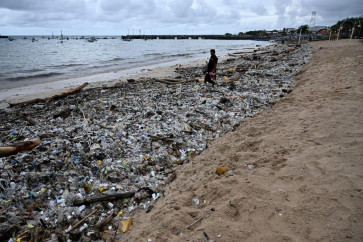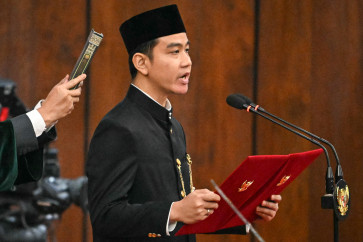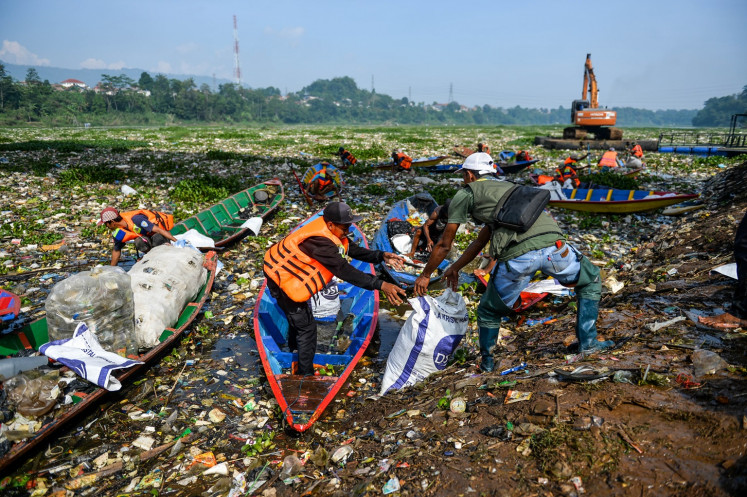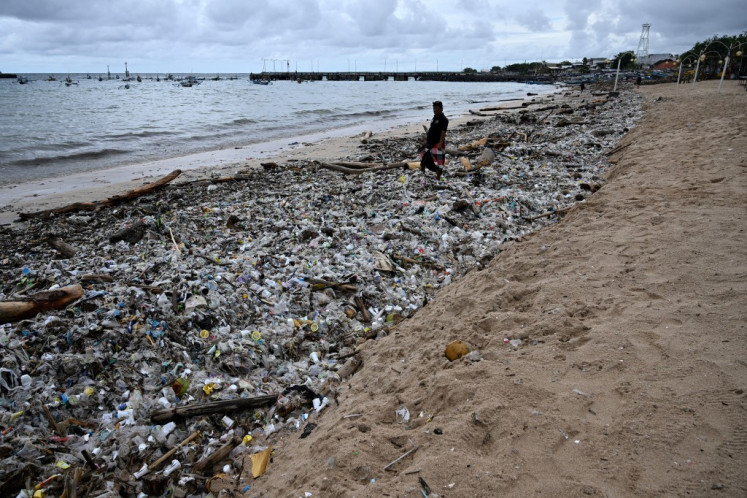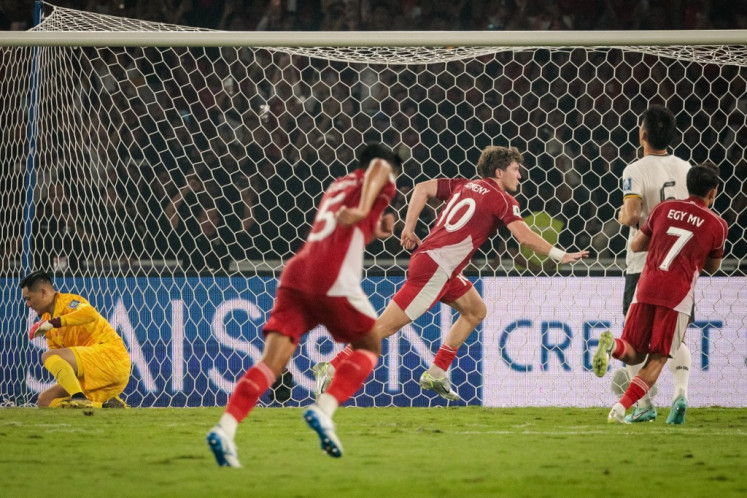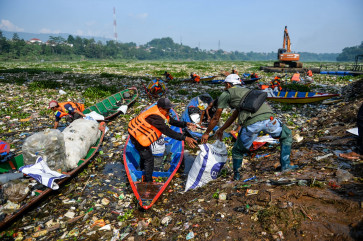From crisis to circularity: Bandung’s fight to curb the tide of waste
The waste crisis in Bandung, like that in many growing cities, is a complex issue rooted in infrastructure gaps, behavioral norms and policy inertia.
Change text size
Gift Premium Articles
to Anyone
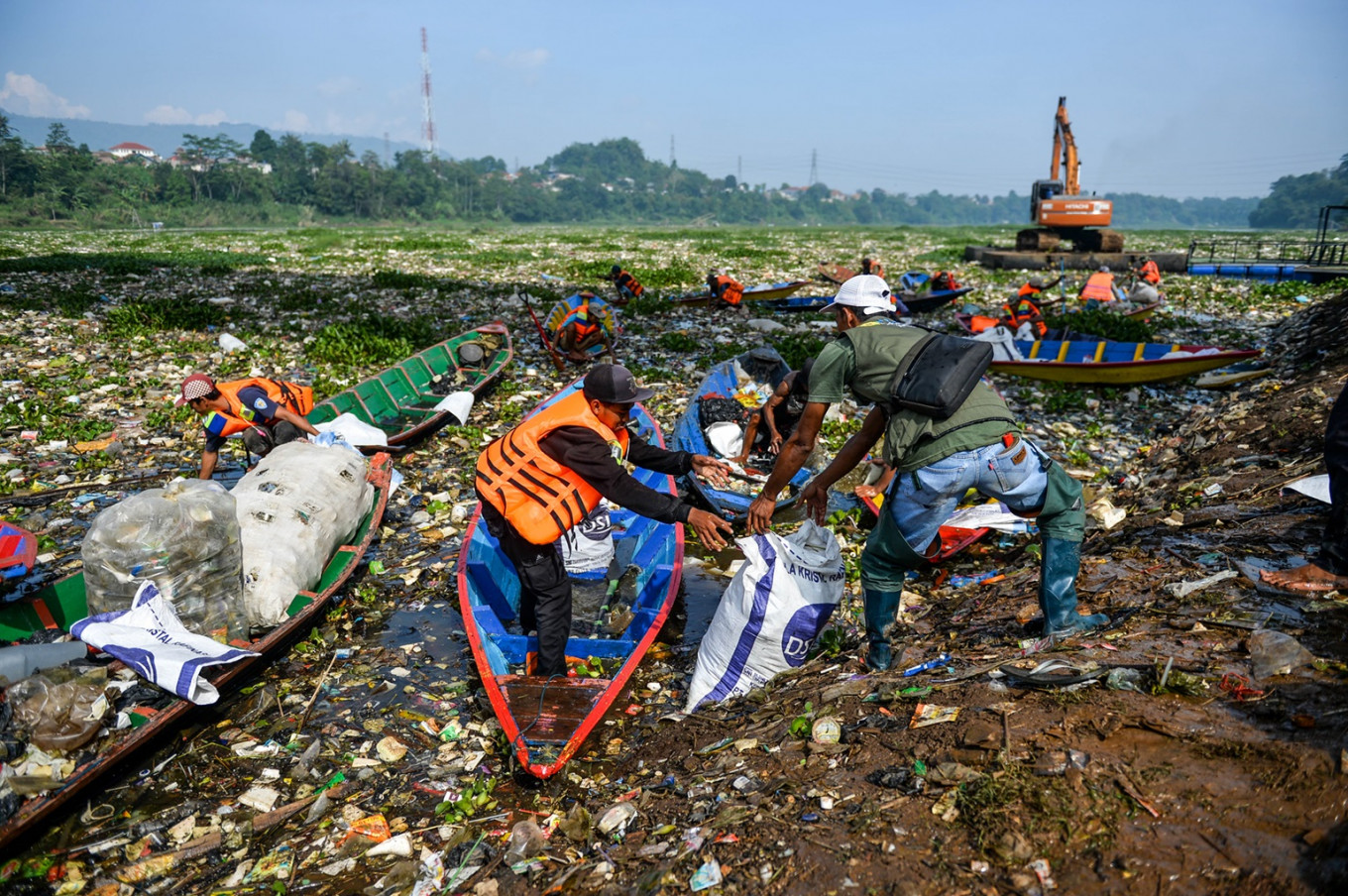 Workers use wooden boats to clear waste from a section of the Citarum River in Batujajar, West Bandung regency, West Java, on June 12, 2024. Authorities estimate that the floating garbage in the Citarum, often dubbed as the world's most polluted river, spans around 3 kilometers and weighs around 100 tonnes. (Antara/Raisan Al Farisi)
Workers use wooden boats to clear waste from a section of the Citarum River in Batujajar, West Bandung regency, West Java, on June 12, 2024. Authorities estimate that the floating garbage in the Citarum, often dubbed as the world's most polluted river, spans around 3 kilometers and weighs around 100 tonnes. (Antara/Raisan Al Farisi)
T
his year, Bandung, the provincial capital of West Java, is mobilizing communities, civil society and institutions in a collective effort to implement lasting solutions to one of our most pressing challenges: Plastic and urban waste pollution.
Aligned with the global #BeatPlasticPollution campaign for World Environment Day 2025, the city aims not only to reduce our environmental footprint but also to redefine how cities like Bandung can lead in circular economy practices.
Yet, the reality remains stark. Bandung still faces a serious waste crisis. Our city produces approximately 1,700 tonnes of waste per day. Of this, only about 1,000 tonnes can be transported to the Sarimukti Final Disposal Site (TPA) in neighboring West Bandung regency. The remaining 700 tonnes overwhelm our neighborhoods, public spaces and waterways.
Some of this uncollected waste is handled through commendable local initiatives such as waste banks, community-run maggot composting and the operation of integrated temporary waste management sites. However, the gap between waste production and disposal capacity persists. As of February 2025, there were 136 waste accumulation points throughout the city, with over 400 tonnes of garbage left unattended, some eventually flowing into our rivers.
Bandung’s rivers, including tributaries of the Citarum River, are now choked with waste. Piles of garbage have blocked waterways in Dayeuhkolot, Bojongsoang and even around the Saguling Reservoir. In some areas, the garbage is so dense it can be walked across. These sights are not just environmental concerns; they undermine Bandung’s identity as a historic, cultural and tourist destination.
This waste problem is not new. In 2023, a fire at the Sarimukti landfill rendered the site temporarily unusable, leaving tonnes of waste uncollected. In 2024 and 2025, limited waste quotas at Sarimukti again triggered logistical bottlenecks, forcing Bandung to divert waste to temporary landfills like Pasir Bajing in the neighboring city of Garut. Our dependency on Sarimukti is unsustainable and exposes our vulnerabilities.
But we are not standing still.


